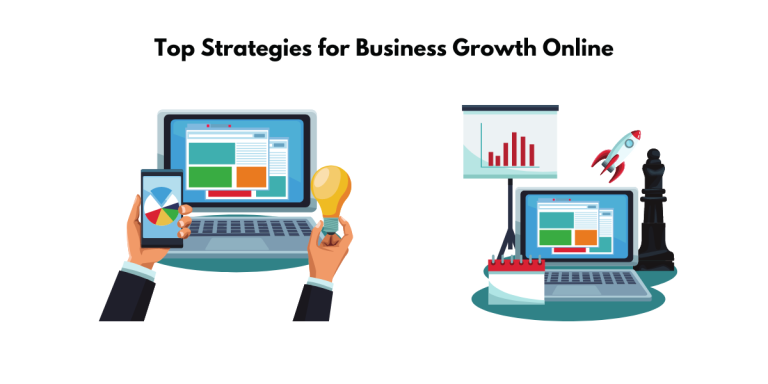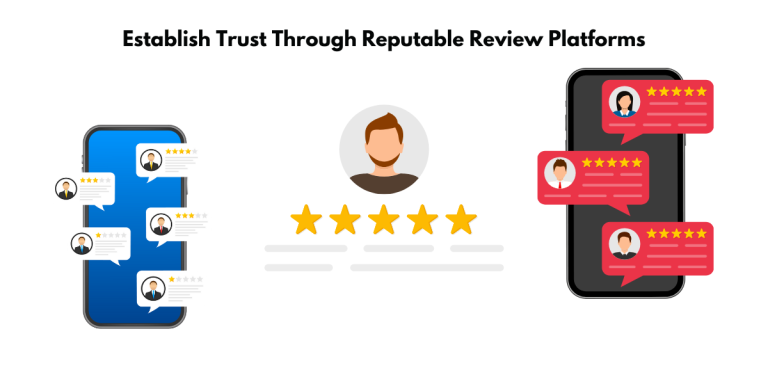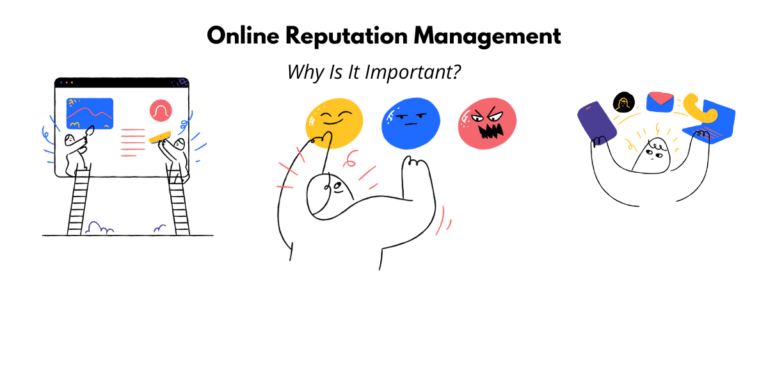How Reputation Management Theory Works
Reputation management theory states that individuals and organizations want to manage their online reputations. It is a proposed set of principles for how an individual or organization can use social media, search engine optimization, and other online platforms to manage their reputation on the web.
The key idea behind this theory is that people want to be seen as likable and trustworthy online. This means it is important to build a reputation based on these two things.
Reputation management
Reputation management is managing and influencing an individual’s or group’s reputation. This can be done by controlling, enhancing, or concealing information about them. There are various ways to go about this, but online reputation management (ORM) has become increasingly important in recent years. ORM focuses on managing an individual or group’s product and online reputation management service search engine results.
There are a few things to keep in mind regarding reputation management. First, some reputable companies will charge thousands of dollars to remove a negative comment from their websites. However, some unethical companies will publish unverified and defamatory statements about people without conforming to ethical standards. Secondly, there are clear lines between ethical and unethical reputational management practices, with some grey areas involved. Finally, reputation management has grown in recent years to include online and offline advertising.
What is reputation?
A person’s reputation is their qualitative belief about themselves. It’s what they think and feels about themselves, separate from what anyone else might say. A good reputation makes people feel confident and proud of who they are. It also gives them a sense of belonging to a community or group.
There are practices for building and repairing your reputation. If you’re not happy with the way others see you, there are things you can do to change it. However, building a good reputation lasts takes time and effort.
A company’s reputation consists of different parts, such as identity and personality. An organization’s identity is its public persona – the face it shows the world. This includes the name, logo, colors, typeface, and slogans that represent the company. The personality of a company is made up of the attitudes and values that drive its decisions and actions. Both identity and personality play an important role in how stakeholders view a company.
A company’s reputation is impacted by stakeholders’ opinions, including friends, family, employees, partners, suppliers, etc… These groups form part of social capital – everyone with some relationship with an organization that can be positive or negative depending on their interactions with the company.
Reputation is composed of different parts: identity, personality, and affiliation. The alignment of these factors is vital if we want to build, sustain and protect an organization’s reputation. When all three are in harmony, it creates a strong foundation to withstand the stormiest of seas. But when they’re out of balance, it can be difficult for a company to recover.
What does a reputation consist of?
There are two key aspects of reputation: identity and personality. Identity is who you are, while personality is how others see you. Reputation is a different part of an organization’s overall brand that people must buy into to believe it.
Online reputation management has become a common service as more and more businesses go online. It’s important to remember that an individual’s reputation has been discussed as an important factor in business success, though no clear consensus exists on managing it best.
How does reputation management help businesses?
A company’s online reputation can make or break its success. To ensure that potential and current public relations have a positive view of the business, it is important to manage one’s reputation.
One way to do this is by using reputation management software. Reputation management software allows businesses to connect with their Gmail accounts when they need help. The article outlines the steps taken by a company to protect its reputation online.
What is reputation management theory?
Reputation management theory is the idea that an individual’s reputation can be managed. This means protecting and enhancing their image, preventing negative associations, or highlighting desirable traits. There are a variety of tactics that can be used to do this.
Reputation management theory is the idea of managing your online presence to control the perceptions of different stakeholders. It often focuses on “brand perception” and how to improve it, though there are other ways to optimize it. Reputation management is about protecting your brand and improving its image. It’s also a form of power; you can control how people see you and what they think of you by controlling your reputation.
Reputation management theory is important to understand because it governs how people and businesses interact with the public. It encompasses the positive and negative aspects of a person’s or company’s reputation. By understanding how different aspects of reputation are formed and maintained, one can take steps to improve their image or protect it from harm.
Why is reputation management important?
A strong reputation is important for any business. When different stakeholders perceive a small business positively, it opens up potential benefits for the organization.
Reputation management theory is the idea that you can improve your company’s reputation to better compete in a crowded market. A good reputation includes increased lifetime value and share performance, attracting new talent, reducing regulatory burden, raising media profile, etc.
Brand reputation management is short-term, whereas building a positive business reputation takes time. Time spent on growth will lead to the company’s and its brand’s long-term success.
How is a reputation developed?

A company’s reputation is a valuable and fragile asset. It can be difficult to quantify, but it is essential to understand how it works to protect and maintain it. In this article, we explore the key principles of reputation management. We also discuss a recent study on the subject and propose a model that explains how reputation develops over time.
Reputations are developed over time
A reputation is something that is built over time. It results from a series of interactions between a company and its stakeholders. In-game theory, a reputation can change other companies’ expectations and their motivation for competing for a certain attribute.
For example, if Company A has a good reputation for delivering products on time, then Company B will be more likely to compete with it to win the business.
Reputation often builds on transparency. An area where a firm holds absolute dominion is usually achieved due to the perceived authenticity of its product or service. For example, Apple’s iPhone commands such a high price because people believe it offers features that are unavailable on other phones.
Transparency engenders trust rather than trying to drive the news agenda. Being open about mistakes and fixing them will positively impact reputation more than refusing to communicate about them. Company policies that are in place for the common good will result in more positive press. For example, Walmart’s decision to no longer sell items containing Confederate flag imagery was seen as supportive of diversity, which was reflected in media coverage about the company.
Employees who feel valued and encouraged to express their online reviews are more likely to spread the good word about the company they work for. For example, Google’s “20% time” policy, which allows employees to spend one day a week working on projects of their choosing, has resulted in the development of several popular products, such as Gmail and Google News.
Reputations are developed through media and content
A reputation is often built through different types of media. In the business world, it is important to know how public relation perceives one. There are two main types of reputation management: online and offline. Online reputation management (ORM) focuses on managing product search results, while offline reputation management (ORM) focuses on managing personal or company reputation in person. The most popular reputation management software for offline ORM are social responsibility and press releases in print media.
Marketing a company online is now considered part of business strategies to be more aware of how public relations perceive them. With more competitors and clutter, it is difficult for businesses to be popular online. Marketing helps restore lost reputation by companies that have lost it or establish a new one. A good way to build a positive reputation is by engaging with the community as often as possible.
Reputations are developed through relationships
A reputation can change the underlying assumptions of interaction between businesses. A company’s reputation can cause other companies in that industry to focus on different attributes rather than competing over a single one, which is costly.
Reputation is developed by maintaining a certain attribute, and it takes time and effort. For example, Amazon has built its reputation on offering low prices for books because it doesn’t carry inventory in physical stores – this eliminates costs associated with stocking shelves, managing returns, and hiring staff to oversee all of that. Furthermore, a reputation for something intangible means that competitors might operate at a loss if they try to enter the market.
Reputation relies on authenticity, which necessitates transparency.” Transparency engenders trust, which will positively impact creputation more than trying to drive the news agenda. For transparency to be effective, though, employees who are encouraged to speak up will be better able to help spread the good word about their companies externally. Furthermore, environmental and social responsibility will engender positive press for the company even if they aren’t doing it for altruistic reasons – consumers are savvy enough nowadays to know when a company is just trying to cover itself with a thin veil of goodness.
Anonymity on the internet is a double-edged sword, with negative and positive aspects. For example, policies put in place for the common good rather than to appear altruistic can result in more helpful press. However, if employees are unaware of these policies or go against the company’s values, it could lead to damaging leaks.
Reputation management theory principles
Reputation management theory studies how to protect and improve a company or individual’s reputation. It has been around for many years but has become more important in the digital age. The key principles of reputation management are: 1) the nature of information has changed drastically over the years, and 2) the principles of corporate practice have been fundamentally altered with the arrival of new technologies. With the advent of social network and other online platforms, it has become easier for individuals and companies to dig up and share information about others. This has made it difficult for businesses to control their image and corporate reputation. Additionally, traditional approaches to corporate reputation management have been largely ineffective because they’re implemented in an analog environment (e.g., print ads, direct mail, etc.).
Build and nurture trust
Trust is a belief in the unknown. It can be difficult to build trust, but any cooperation needs to be established. Trust is often based on goodwill, a common interest, and force. It takes place under different conditions and covers a wide range of activities.
When an organization struggles, trust decreases as people become more uncertain about each other’s motives. However, when an organization is healthy, trust increases as people are more likely to believe that others have their best interests at heart. This allows for greater cooperation and productivity within the group.
Trust is considered a state of mind between business partners or predictable and mutually acceptable actions. It can also be quantified using “cost.” The speed of trust can also be measured to determine how fast or slow the process takes place.
Trust management theory says that trust decreases when an organization struggles and increases when it’s healthy. Therefore, companies must nurture trust by establishing clear communication channels, promoting transparency, and showing that they value their employees’ well-being.
Expect your every move and word to be public knowledge
In today’s digital age, it is important to know that your every move and word can be public knowledge. Thanks to social networking, individuals and organizations can communicate with many people in real-time. This means that companies need to invest in reputation management if they want to protect their brand image.
A good reputation is essential for business survival in today’s competitive marketplace. It is not easy to build a good reputation, but it can be destroyed in a second. Organizations need to be prepared for any negative publicity that may arise.
Online reviews are difficult to control, so companies need to take a proactive approach to reputation management. This includes conducting regular stakeholder and social media analyses to figure out what messages stakeholders need or want to see from the company.
Plan for the challenges that social media brings
Organizations face many challenges when it comes to social media, such as:
- How quickly should they respond to a negative review?
- What is the best way to highlight positive mentions?
- Is it better to be proactive or reactive in regards to social media?
- Who should access shared media, and how can it be controlled?
Embrace the opportunities that social media provides
Social media provides many opportunities for businesses to connect with public relations. It allows customers to interact directly with the company and gives businesses a way to respond quickly to any complaints or inquiries. Additionally, social media can be used to distribute content, which can help increase brand awareness. Falsifying online reviews on social media is a way to engineer your reputation, but it is unethical and should not be done by businesses. Instead, embrace social media opportunities and focus on being honest and providing quality content. This will help you build a positive online reputation that will benefit your business in the long run.
Earn reputation; don’t create an image
Many people think a company’s corporate identity and image are the same, but they are quite different. A company’s corporate identity is one of the seven principles in Reputation Management theory. It is a comprehensive picture of the whole functioning created by individual elements, which include philosophy and vision, people who belong to the company, its ethical values, and visual style. Corporate identities are created with various activities that represent uniqueness in people and businesses.
Corporate identity represents what the company wants to be in the public eye. It usually corresponds with how a company wants to present itself externally through its products, services, and communication policies. However, it should be noted that image is not something that can be bought or changed easily; it must be earned or deserved by an enterprise. Image is often confused with reality, but it is made up of several parts, all predictable and dominant in their detail. To manage your reputation properly, you must consider objective and subjective factors, non-material factors being especially important.
Be true to your values when crisis strikes or suffer the consequences
Reputation damage is not the time to start worrying about your company’s values. It’s exactly when you should double down on them. While it may be difficult at the moment, adhering to your core values will help you weather any storm and come out stronger on the other side.







